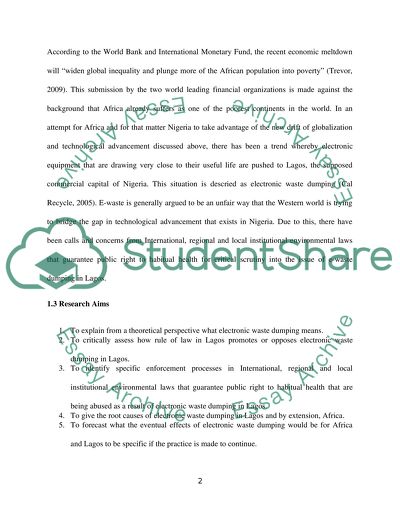Cite this document
(“Research Proposal (E-waste Dumping & The Rule of Law in the 'Computer Paper”, n.d.)
Retrieved from https://studentshare.org/law/1433598-research-proposal-e-waste-dumping-the-rule-of-law
Retrieved from https://studentshare.org/law/1433598-research-proposal-e-waste-dumping-the-rule-of-law
(Research Proposal (E-Waste Dumping & The Rule of Law in the 'Computer Paper)
https://studentshare.org/law/1433598-research-proposal-e-waste-dumping-the-rule-of-law.
https://studentshare.org/law/1433598-research-proposal-e-waste-dumping-the-rule-of-law.
“Research Proposal (E-Waste Dumping & The Rule of Law in the 'Computer Paper”, n.d. https://studentshare.org/law/1433598-research-proposal-e-waste-dumping-the-rule-of-law.


